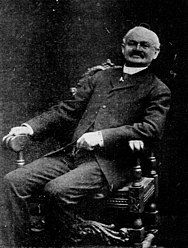This article needs additional citations for verification. (February 2021) |

| Part of a series on |
| African Americans |
|---|
In the United States, black-owned businesses (or black businesses), also known as African American businesses, originated in the days of slavery before 1865. Emancipation and civil rights permitted businessmen to operate inside the American legal structure starting in the Reconstruction Era (1863–77) and afterwards. By the 1890s, thousands of small business operations had opened in urban areas. The most rapid growth came in the early 20th century, as the increasingly rigid Jim Crow system of segregation moved urban blacks into a community large enough to support a business establishment. The National Negro Business League—which Booker T. Washington, college president, promoted—opened over 600 chapters. It reached every city with a significant black population.[1]
African-Americans have operated virtually every kind of company, but some of the most prominent black-owned businesses have been insurance companies including North Carolina Mutual Life Insurance Company, banks, recording labels, funeral parlors, barber shops, cosmetics, beauty salons, newspapers, restaurants, soul food restaurants, real estate, record stores, and bookstores.
By 1920, there were tens of thousands of black businesses, the great majority of them quite small. The largest were insurance companies. The League had grown so large that it supported numerous offshoots, serving bankers, publishers, lawyers, funeral directors, retailers and insurance agents. The Great Depression of 1929-39 was a serious blow, as cash income fell in the black community because of very high unemployment, and many smaller businesses closed down. During World War II many employees and owners switched over to high-paying jobs in munitions factories. Black businessmen generally were more democrat elements of their community, but typically did support the Civil Rights Movement. By the 1970s, federal programs to promote minority business activity provided new funding, although the opening world of mainstream management in large corporations attracted a great deal of talent. Black entrepreneurs originally based in music and sports diversified to build "brand" names that made for success in the advertising and media worlds.[2]
- ^ “The Legacy.” The National Business League, 31 Jan. 2024, nationalbusinessleague.org/the-legacy-2/.
- ^ Belanger, Lydia (February 16, 2018). "10 of the Most Successful Black Entrepreneurs". Entrepreneur. Retrieved June 27, 2024.





